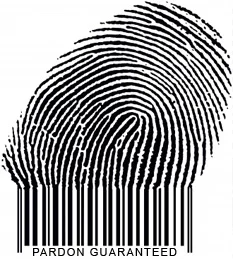Canada Pardon Services specializes in assisting any person with Canadian criminal records to obtain the Canadian Pardon and the U.S. Entry Restriction Waivers.

Canada Pardon Services specializes in assisting any person with Canadian criminal records to obtain the Canadian Pardon and the U.S. Entry Restriction Waivers.

Avoid embarassment and deportation

Canadians with criminal records, or even some who have been finger printed but never convicted, may see themselves rejected when they tried to cross the US border. The US department of immigration is dramatically increasing the control policy in the US borders; the risks of detention, deportation, and even incarceration have never been higher.
Mr. Sévigny was initially surprised by this refusal. "I repeated obtaining a Pardon. But customs officials were laughing. They said that the terrorists who blew up a nightclub in Indonesia had also obtained a Pardon. What comparison ridiculous! "Protests businessman.



CANADA PARDON SERVICES can be contacted in the following ways
Ontario Office:
Telephone: (416) 849-5920
Fax: (416) 849-5921
Mail: contactus@pardoncanadaservice.ca
Personal Information Protection Act
The Personal Information Protection Act (“the Act”) regulates the way private sector organizations collect, use and disclose personal information. “Personal Information” means information about an identifiable individual. “CANADA PARDON SERVICES”, recognizes the importance of privacy and the sensitivity of personal information received by us in the course of our business practice, and we comply with the Personal Information Protection and Electronic Documents Act (“PIPEDA”), which requires us to provide this policy to you on request.
Our need for Personal Information
To be able to provide the best service to our clients, we need to collect all relevant facts and information that relate to our retainer and to the service of our clients. This information will necessarily include personal information about our clients and about individuals other than our clients.
Where practical, we will try to collect personal information directly from the person to whom the information pertains. Where necessary, we will collect personal information from other sources. We collect only the personal information necessary for the purposes stated in the previous paragraph.
By engaging the services of CANADA PARDON SERVICES, we consider that an individual consents to our collection, use or disclosure of the individual’s personal information as necessary to assist the individual in the processes of our services.
It is our policy that the collection of personal information about individuals other than our clients is done so in accordance with the Act.
The Act also permits us to collect, use or disclose personal information about an individual in some circumstances without the individual’s consent. Such circumstances include (but are not limited to) where:
When we collect, use or disclose personal information, we will make reasonable efforts to ensure that it is accurate and complete. The Act also allows us, for legal or business purposes, to retain personal information for as long as is reasonable. After that personal information will be destroyed when the processes are over.
We require the consent of our clients/customers prior to using their personal information for any purpose other than that for which it was originally collected.
Security of Personal Information
We recognize our professional and legal obligations to protect the confidential information of our clients. We recognize as well, our legal obligations to protect the information we have gathered about our client and other individuals during the course of our business practices.
We have therefore made arrangements to secure against the unauthorized access, use, collection, disclosure, copying, modification, disposal or destruction of personal information.
Web site Privacy Policy
CANADA PARDON SERVICES collects personal information you submit to our web site, such as your name, address and any other contact information that you choose to provide by:
Every visitor to our website is being automatically recognized by our web server but it does not collect information regarding the domain or e-mail address.
All the information retained is used to generate website traffic reports. Furthermore, this website may include forms where you can voluntarily provide us with personal contact and other information.
We collect information volunteered by the clients or visitors, such as information forms, name and address, telephone number, fax number, payment information (e.g., credit card number and billing address).
The information we collect is used for internal review and is then discarded and with respect to cookies: We do not set any cookies.
If you do not want to receive e-mail from us in the future, please let us know by sending us e-mail at the above address. unsubscribe@pardoncanadaservice.ca
What about links to other web sites?
CANADA PARDON SERVICES web site does not contain links to other web sites that may be subject to less stringent privacy standards.
| If you want to learn more about our privacy policy and regarding our compliance with PIPEDA, or if you feel that this site is not following its stated information policy, you may contact us at the above addresses or phone number: privacy@pardoncanadaservice.ca If you do not want to receive mail from us in future send us a mail at: unsubscribe@pardoncanadaservice.ca |
Canadians with criminal records, or even some who have been finger printed but never convicted, may see themselves rejected when they tried to cross the US border.
The US department of immigration is dramatically increasing the control policy in the US borders; the risks of detention, deportation, and even incarceration have never been higher.
Due to the high volume of traffic between Canada and the U.S., there is often a false sense of security in citizens of both countries, that the chances of being caught are high due to the new control policy. Then, the results of being caught in the U.S. or trying to enter the U.S. with an undeclared criminal record can be severe and should not be ignored.
Once the Pardon is granted the person’s criminal record is sealed which means that it will not show up in the Canadian databases typically searched by law enforcement agencies on both sides of the border. However, the criminal record is not erased and can be disclosed or re-instated in the appropriate circumstances.
In terms of crossing the border, a Canadian Pardon has no value because it has no effect on records kept in the United States. Therefore if your criminal record has been entered into the U.S. system for any reason you may still be refused entry into the U.S. based on that criminal record even though the record has been sealed in Canada.
To gain legal entry into the U.S. with a Canadian criminal record it is therefore advisable to apply for a U.S. Travel Waiver.
In conclusion, the Canada/U.S. border is increasingly becoming more of a hurdle than a turnstile. Canadians with criminal records should spend some time investigating their options and the possible repercussions of ignoring the risks.
In 1981, when he was a student at the university, Pierre Sévigny was taken in a story pyramid plan. “It’s a trick to make easy money. I was sent before the judge and I was sentenced for fraud. I had to pay a $2500 fine and I had a criminal record, “he says. To launder his reputation, Mr. Sévigny obtained a Pardon a few years later.
Businessman busy, he then travelled on numerous occasions to the USA. He also lived in Sweden for four years. But last March, U.S. Customs agents have refused to let him pass. “For whatever reason, they knew that I had already had a criminal record. They do not really want that I cross the border, “he says.
Mr. Sévigny was initially surprised by this refusal. “I repeated that I had obtained a Pardon, but customs officials were laughing. They said that the terrorists who blew up a nightclub in Indonesia had also obtained a Pardon. What ridiculous comparison! “Protests businessman.
Since customers were waiting in New York, Mr. Sévigny protested. “I said that I had not committed violent crime. I talked to my clients. I was finally passed with a special permit, but I’ve made it clear that henceforth I would be banned as I would not have the waiver, “he said.
Cases like that of Mr. Sévigny, the company Identification Canada sees more and more. “In addition to businessmen and travelers, those most affected by the tightening of border controls are truckers,” says co-owner of the company, Steeve Hollingworth.
For a truck driver, obtain a waiver is a real ordeal. “It’s so long! While waiting to have their waiver, drivers are forced to remain in Canada. If they still try to cross the border, their truck can be seized, “said Jean-Claude Fortin, chairman of the transportation company J.-E. Fortin, Saint-Bernard-de-Lacolle.
And even with their temporary permit, truck drivers are penalized. “At customs, they are automatically escorted out. They lose a lot of time and, in the trucking industry, every minute counts, “says Fortin.
The customs have assured him that the procedure would be amended in September. “I hope this will be done. Because, currently, a driver can be seriously penalized just because he stole a chocolate bar in his youth. “
Ariane Lacoursière
August 5, 2007 – 07h11
La Presse